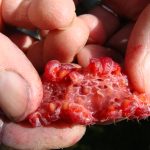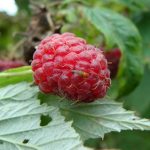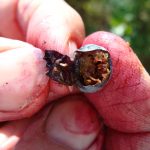Spotted Wing Drosophila Update: October 15, 2021
Spotted Wing Drosophila UPDATE: 10/15/2021
Last Issue for 2021 Season
Click on photos to enlarge.
David Handley, Vegetable and Small Fruit Specialist; James Dill, Pest Management Specialist, Phil Fanning, Assistant Professor of Agricultural Entomology, Christina Howard, Produce Safety Professional
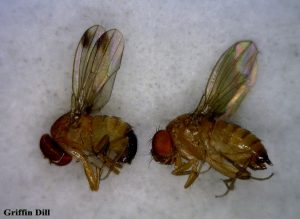
This will be the last issue of the Spotted Wing Drosophila Alert for the 2021 season. We’d like to thank all the growers who allowed us to set up traps in their fields and the scouts who helped maintain them, including Brooke Martin and Lee Lavoie. Special thanks to Caitlin Ramsay for editing and mailing the newsletter and for updating our website and blog.
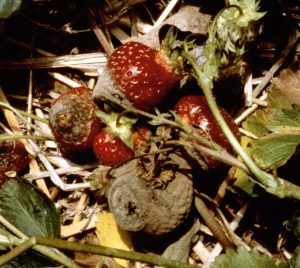
Spotted wing drosophila catches in vinegar/yeast traps continued to trend lower this week, although counts at all trap locations remain over the control threshold for fruiting fields. Harvest of fall berries is winding down, although the season has been extended by warm weather and no killing frosts. In addition to SWD, growers have had to battle fungal diseases, including Botrytis (gray mold) and anthracnose fruit rots, due to the frequent rain characteristic of this fall. Protection of remaining fruit from SWD and fungal diseases will require regular applications of effective insecticides and fungicides. A three to five-day spray schedule should be adequate. Rotate the insecticide and fungicide products used (IRAC and FRAC numbers) used to maintain long term effectiveness.
There have been some questions about the effectiveness of applying “cleanup” insecticide sprays for SWD late in the fall, in hopes of reducing overwintering flies and infestations of next year’s berries. To date, research has not shown this to be an effective tactic. SWD does not overwinter in large numbers in berry fields, and infestations that occur come from populations moving in from outside the fields.
- SWD Larvae in Raspberry, photo by David Handley
- SWD on Raspberry; photo by David Handley.
- Spotted Wing Drosophila Larvae in Blueberry; photo by David Handley
For more information on identifying spotted wing drosophila (SWD) and updates on populations around the state, visit our SWD blog
Other IPM Web Pages
Michigan State University
David T. Handley
Vegetable and Small Fruit Specialist
Highmoor Farm Pest Management Unit
P.O. Box 179 17 Godfrey Dr.
Monmouth, ME 04259 Orono, ME 04473
207.933.2100 1.800.287.0279
Where brand names or company names are used it is for the reader’s information. No endorsement is implied nor is any discrimination intended against other products with similar ingredients. Always consult product labels for rates, application instructions and safety precautions. Users of these products assume all associated risks.
The University of Maine is an equal opportunity/affirmative action institution.
| Town | Spotted Wing Drosophila weekly trap catch 9/26/21 | Spotted Wing Drosophila weekly trap catch 10/3/21 | Spotted Wing Drosophila weekly trap catch 10/10/21 |
|---|---|---|---|
| Wells | 896 | 8,224 | 6,256 |
| Limington | 4,872 | 1,682 | 1,936 |
| Limerick | 2,672 | 1,480 | 122 |
| New Gloucester | 2,344 | 165 | 222 |
| Bowdoinham | 3,096 | 1,880 | 278 |
| Mechanic Falls | 215 | 25* | 42 |
| Monmouth | 3,160** | 1,344** | 720** |
| Wayne | 5,664 | 2,224 | 154 |
*Trap damaged; limited data
**Unsprayed plot
| Trade Name | IRAC Group | Days to Harvest Blueberry |
Days of Residual |
|---|---|---|---|
| Assail® | 4A | 1 | 5-7 |
| Mustang Max® | 3 | 1 | 7 |
| Bifenture® | 3 | 1 (3 raspberry) | 7 |
| Brigade® | 3 | 1 (3 raspberry) | 7 |
| Danitol® | 3 | 3 | 7 |
| Delegate® | 5 | 3 (1 raspberry) | 7 |
| Entrust®* | 5 | 3 (1 raspberry) | 3-5 |
| Exirel® | 28 | 3 (1 raspberry) | 5-7 |
| Imidan® | 1B | 3 (not for raspberry) | 5-7 |
| Malathion | 1B | 1 | 3-5 |
| PyGanic®* | 3A | 0 | 0 |
| Verdepryn ® | 28 | 1 | 5-7 |
*OMRI approved

